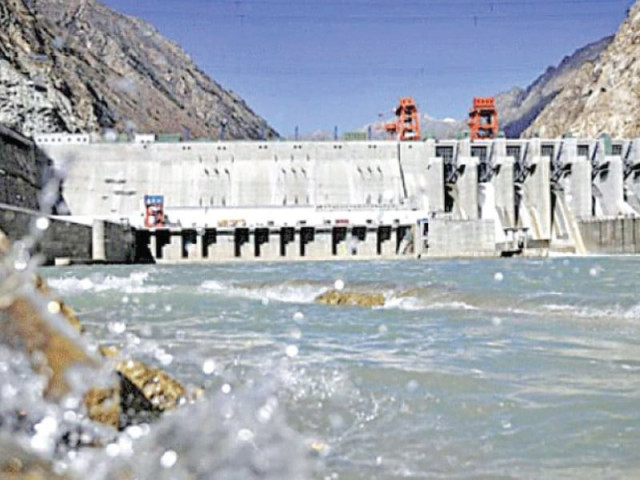World Bank approves $1b additional financing for Pakistan
Funds to be used for phase one of the Dasu Hydropower project, aimed at expanding country's electricity supply

The World Bank approved $1 billion in a second round of additional financing for the DASU Hydropower Stage I (DHP I) Project on Monday.
The funds will be used for phase one of the project, aimed at enhancing and expanding the country's electricity supply.
“Pakistan’s energy sector suffers from multiple challenges to achieving affordable, reliable, and sustainable energy,” said Najy Benhassine, World Bank Country Director for Pakistan.
According to the World Bank, the project will improve electricity provision and expand access to socio-economic facilities.
The Dasu Hydropower Project is expected to be a significant development for Pakistan, contributing to the production of affordable electricity.
DHP is a run-of-river project on the Indus River about 8 km from Dasu Town, the capital of the Upper Kohistan District of Khyber Pakhtunkhwa Province. Upon completion, it will have an installed capacity of 4,320–5,400 MW.
The project is being built in stages. DHP-I has a capacity of 2,160 MW and will generate 12,225 gigawatt hours (GWh)/year of low-cost renewable energy. The DHP-II will add 9,260–11,400 GWh per year from the same dam.
“DHP-I is an essential project in Pakistan’s efforts to reverse its dependence on fossil fuels and reach 60 per cent renewable energy by 2031,” said Rikard Liden, Task Team Leader for the Project.
The additional financing will further support ongoing socio-economic initiatives in Upper Kohistan, particularly in the areas of education, health, employment, and transport.
Pakistan urgently requires cheaper electricity resources to reduce reliance on expensive imported fuel-based power generation.
High electricity costs have prompted households, factories, mosques, and hospitals to turn to solar power generation, increasing the burden on those still connected to the national grid.
Pakistan has been a member of the World Bank since 1950. Since then, the World Bank has provided over $46 billion in assistance. The current portfolio has 55 projects and a total commitment of $14.7 billion.
On June 9, the Federal Board of Revenue (FBR) demanded $25 million from the World Bank to effectively enforce an automated tax refund system under the Income Tax Ordinance (ITO) 2001.
According to them, the FBR submitted a report titled ‘Findings and Recommendations of Committee for Effective Enforcement of Section 170A [of the ITO-2001] before the Islamabad High Court (IHC) in a public interest petition.



















COMMENTS
Comments are moderated and generally will be posted if they are on-topic and not abusive.
For more information, please see our Comments FAQ